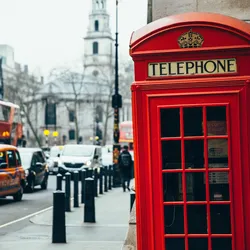
Level 1:
The UK is proud of its culture. One thing that is special is the Royal Family. They have been around for a long time. The Queen, Elizabeth II, has been the leader for more than 60 years. The Royal Family takes care of important places and does things that are important for the UK. They also help people and give money to good causes. Some people do not like the Royal Family, but many people do. It is an important part of UK life and makes people happy.
Level 2:
The United Kingdom is renowned for its diverse and rich culture, with the Royal Family being a significant point of pride. The Royal Family has played a crucial role in British culture for centuries, with Queen Elizabeth II currently serving as the longest-reigning monarch in British history. The Royal Family is associated with many important historical landmarks and traditions, and its involvement in state events, such as the Trooping the Colour ceremony and the State Opening of Parliament, are vital components of the country’s cultural identity. Despite criticisms surrounding the cost of the monarchy, the Royal Family continues to play a vital role in shaping the UK’s identity and traditions.
Full Story:
The United Kingdom is well-known for its rich and diverse culture. The country has numerous varied traditions, customs, and historical landmarks that its people treasure. Among these is the Royal Family, a source of pride in British culture that is revered around the world.
For generations, the Royal Family has been an important element of British culture. The monarchy has changed dramatically over time, but it continues to maintain a special place in the hearts of the British people. Queen Elizabeth II, the present monarch, has been on the throne for over 60 years and is the longest-reigning monarch in British history.
The Royal Family’s role in maintaining and promoting the country’s cultural history is one of the reasons why it is so vital to the UK. Many of the most notable historical sites and traditions in the United Kingdom are strongly tied with the monarchy. Buckingham Palace, the Queen’s official residence, is one of the most iconic structures in the world, attracting millions of people each year. The engagement of the Royal Family in state events such as the State Opening of Parliament and the Trooping of the Colour ceremonial is also an important aspect of the UK’s cultural identity.
Furthermore, the Royal Family represents unity and continuity. They reflect the shared history and customs of the country, and their presence helps to bring people together. The Royal Family is also involved in several charitable and philanthropic initiatives, supporting a wide range of causes and organizations around the United Kingdom.
The Royal Family, despite its importance, is not without controversy. Some argue that the monarchy is antiquated and no longer relevant in modern culture. Others argue that the cost of preserving the monarchy represents a waste of taxpayer dollars.
Despite this, the Royal Family is still a source of pride for many people in the United Kingdom. Its cultural and historical significance cannot be overstated, and the monarchy continues to play a significant role in establishing the country’s character and traditions.
Finally, the Royal Family is a source of pride in British society. It symbolizes the country’s rich history and traditions, as well as its dedication to unity and continuation. While the monarchy is not without criticism, it continues to play a vital role in British life and culture.
Questions:
What is the role of the Royal Family in UK culture?
How long has Queen Elizabeth II been on the throne, and what is her significance to the monarchy?
What are some examples of historical landmarks and traditions that the Royal Family is associated with?
What are some criticisms surrounding the cost of maintaining the monarchy?
In your opinion, do you think the Royal Family is an important part of British culture, and why or why not?
Fill In the Blanks:
associated, monarch, maintaining, vital, renowned, identity, traditions, diverse, ceremony, criticisms
The United Kingdom is well-known for its rich and ________ culture.
The country has numerous varied ________, customs, and historical landmarks that its people treasure.
Queen Elizabeth II, the present ________, has been on the throne for over 60 years and is the longest-reigning monarch in British history.
The Royal Family’s role in ________ and promoting the country’s cultural history is one of the reasons why it is so ________ to the UK.
The engagement of the Royal Family in state events such as the State Opening of Parliament and the Trooping of the Colour ceremonial is also an important aspect of the UK’s cultural ________.
The United Kingdom is ________ for its diverse and rich culture, with the Royal Family being a significant point of pride.
The Royal Family is ________ with many important historical landmarks and traditions, and its involvement in state events, such as the Trooping the Colour ________ and the State Opening of Parliament, are vital components of the country’s cultural identity.
Despite ________ surrounding the cost of the monarchy, the Royal Family continues to play a vital role in shaping the UK’s identity and traditions.
Difficult Words:
diverse - showing a great deal of variety, mixed, different, assorted
renowned - famous, celebrated, well-known, distinguished
monarch - a king or queen, ruler, sovereign
associated - connected, linked, related, affiliated
vital - essential, crucial, important, necessary, key
identity - the characteristics, beliefs, and values that distinguish one person or group from another, individuality, personality, distinctiveness
traditions - customs and beliefs that have been passed down over time, heritage, culture
ceremony - a formal event performed on a special occasion, ritual, celebration
criticisms - the act of expressing disapproval or finding fault, censures, objections, complaints
maintaining - keeping in good condition, sustaining, preserving, upholding.




